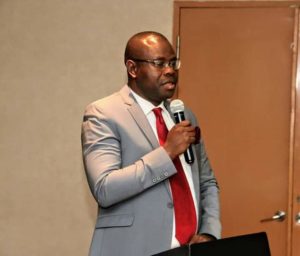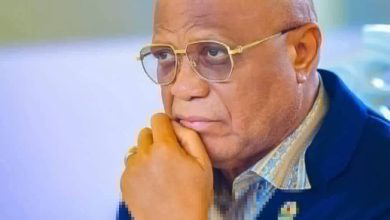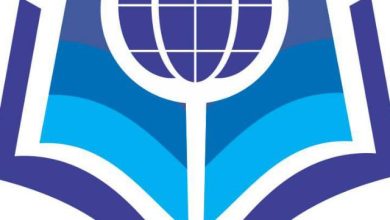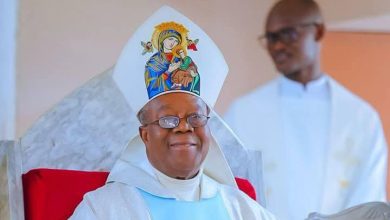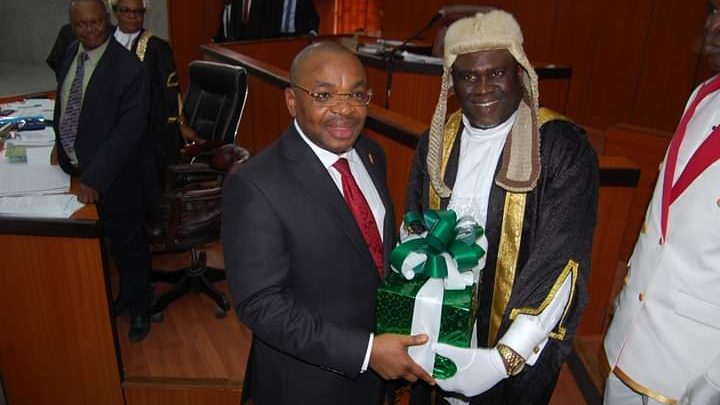
On Tuesday, October 8, 2019, the Akwa Ibom State Governor, Mr Udom Emmanuel presented the Estimates of Revenue and Expenditure of Akwa Ibom State Government for the 2020 Fiscal Year before the Akwa Ibom State House of Assembly.
This gesture is a necessity as provided for in section 121 (1) of the 1999 Nigerian Constitution which states : The Governor shall cause to be prepared and laid before the House of Assembly at any time before the commencement of each financial year estimates of the revenues and expenditure of the State for the next following financial year.
Governor Udom Emmanuel says the 2020 budget estimate is christened “The Budget Of Industrialization For Poverty Alleviation Phase II.” The 2019 Budget was also named the “Budget of Industrialization for Poverty Alleviation.”. Governor Emmanuel explains that the name stems from the fact that his completion agenda is predicated primarily on the rapid industrialization of the state just as in 2019 fiscal year which according to him, the State had started witnessing major breakthroughs in industrialization.
According to Governor Emmanuel, the Budget Of Industrialization For Poverty Alleviation Phase II, reflects further his Government’s resolve to build more industries, attract more Foreign Direct Investments, while ensuring the consolidation and sustenance of already actualized and on-going socio-economic programmes across all sectors. Yet, what really is the content of the 2020 budget proposal?
Highlight of 2020 Budget Estimates
The Governor says the 2020 Budget proposal is predicated on an oil benchmark of $55 per barrel at a production rate of N2.18 million barrels per day, with an estimated exchange rate of N305/US$, in line with the National Budget benchmark projections.
Budget Size
Governor Emmanuel notes that the 2020 fiscal year has a proposal of budgetary outlay of N597.800 billion as against the approved provision of N672.985 billion of 2019. This is made up of: Recurrent Expenditure of N111.225 billion, Capital Expenditure of N369.642 billion, Consolidated Revenue Fund Charges of N116.933 billion totaling N597.800 billion. But how will the State fund the budget?
Revenue
The total projected Recurrent Revenue for 2020 is estimated at N381.556 billion as against the approved provision of N374.758 billion for 2019. Internally Generated Revenue (IGR) is projected at N 52.556 billion, Statutory Allocation envisaged at N 52.000 billion,
Derivation Fund envisioned at N255.000 billion, Retained Revenue from Parastatals is N 2.000 billion, and
Value Added Tax (VAT) N 20.000 billion totaling N381.556 billion.
Expenditure
For the 2020 fiscal year, Governor Emmanuel says Recurrent Expenditure is proposed at N228.158 billion. This amount is made up of: Personnel Costs – N 60.942 billion, Overhead Costs – N 50.283 billion, Consolidated Revenue Fund Charges 116.933 billion (including pensions, gratuities and public debts.)
On the other hand, the Governor mentions that the total Capital Receipts and Expenditure for the year 2020 is estimated at N369.642 billion as against the approved provision of N447.903 billion for 2019. He states that the total projected capital receipts shows that N153.398 billion will be transferred from the consolidated revenue fund, while the balance of N 216.244 billion is to be realized from: Opening Balance from 2019 account – N 9.944 billion , Internal/External Loans – N35.300 billion, Grants- N50.000 billion,Ecological Funds – N20.000 billion, Re-imbursement from Federal Government on Road and other Infrastructure- N50.000 billion, Investment Income-N 1.000 billion, Refunds from Excess Loan Deduction and other exceptional Income- N50.000 billion. But how is the budget estimate allocated to different key sectors?
Highlight of Allocation to Key Sectors
A look into the 2020 budget estimates shows that Economic Sector gulps the highest in allocation with the sum of N244.174 billion followed by Road, Works and Transport with a budget of N115.801 billion. Lands, Housing and Urban Development takes N53.637 billion while Social sector enjoys N20.116 billion. N12.371 billion is budgeted for Agriculture with Education benefiting from N4.98billion.
Information, Sports and Social Development is allocated with N8.191 billion, Investment, Commerce and Industry has N6.000 billion and Health goes with N4.590 billion.
Other sectors are Environment and Mineral Resources- N2.700 billion, Law and Justice Sector- N2.649 billion, Justice- N2.645 billion, Science and Technology- N1 billion, Culture and Tourism- N1 billion, Rural Development- N700 million and Regional Sector – N700 million.
Be that as it may, how is the budget so presented to the House of Assembly viewed? Will it guide the State to a height worthy to be reckoned with? Experts, Civil Society organisations and Labour Unions had during the Public Hearing of the budget held on Monday , October 21, 2019 noted where the State government have done creditably and have equally highlighted red flags for the State House of Assembly to take cognizance of before passing the budget into law.
Plausibility of the budget estimate
Policy Alert, a Civil Society Organization known for cutting edge research and policy analysis says the Executive arm of the Akwa Ibom State Government has done well in tabling the State draft budget of 2020 at a record time on October 8, 2019.
The Executive Director of the Organization, Tijah Bolton points out that the early presentation gives hope that the budget cycle which he describe as long-distorted is finally on the way to being regularized to a January-December calendar as he hopes the House will hit the ground running and beat the December 31st deadline for enactment of the budget.
Bolton explains that when this is done, it will reduce what he mentions as the usual underperformance and delays in capital budget implementation. What is more, the Akwa Ibom State Commissioner for Economic Development and Ibom Deep Seaport, Mr Akan Okon reveals that the State will be entitled to N3 million dollars if it passes its 2020 budget into law and publish same on the State Government website before January 2020.
It could be recalled that the 2019 proposals were tabled before the Akwa Ibom State House of Assembly on November 14, 2018 and the Akwa Ibom State House of Assembly held a public hearing on it on December 6 ,2018. The House passed the budget into law on March 13,2019 before it received assent from the Governor on March 20, 2019.
Again, the Executive Director of the organization states that the executive has proposed a reasonable crude benchmark price for the 2020 budget. He explains ” While the 55 dollars per barrel proposed differs slightly for the first time in a few years from the federal benchmark, it is reassuring that it aligns with the estimates in 2020-2022 FG Medium Term Expenditure Framework ( MTEF) and market trends.” But they are not alone in this thought. The Nigeria Labour Congress shares the same sentiment. According to the Vice Chairman and Acting Secretary of the Umbrella Labour organisation in the State, Comrade Iboro Ibara who is also an Economist notes, ” The 2020 Budget Proposals are to some extent more realistic than previous editions in terms of its projections.”
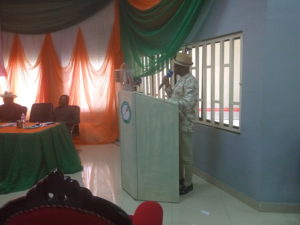
In addition, Youth Advocacy Cluster (YAC) , a compendium of 21 civil society organizations commends the House of Assembly for opening up the civic space for citizens participation in the budgetary process through Public Hearing.
They commend the executive over the use of International Public Sector Accounting Standards (IPSAS) which they say is the best budgeting model for the formulation of the State budget.
In spite of the plausibility of the budget, some warning signs has however been noticed.
Red Flags in Key Sectors of Akwa Ibom State
Education
For all the Civil Society groups which presented their memorandum at the 2020 public hearing of the budget proposal, none failed to raise alarm over what they described as a far cry from standard in the budget for education. In 2019 N13.74billion was the approved capital expenditure for education in the State. However, an allocation of N4.98 billion which is 1.27 per cent of the total capital outlay is budgeted as capital expenditure for the education sector in 2020 fiscal year. The United Nations recommends 26 per cent in the total capital outlay for education in developing societies.
While expressing disappointment over the appropriation, Policy Alert notes that since education is the bedrock of development in any ideal society, one will expect a visionary government to give precedence to expenditure on qualitative, affordable, accessible and functional education.
The organisation adds ” It is quite sorrowful that despite being amongst the highest oil and gas revenue earning states, Akwa lbom State is also amongst the most endemic States of out of school children.
“If this trend is to change, the government will have to invest heavily in providing a conducive and enabling environment for teaching and learning, as education is one of the most powerful tools for eradicating extreme poverty and hunger.”
Likewise, since youth are said to be the largest population interested in education, Youth Advocacy Cluster are not left out in making input towards the budget for education. They note ” We fervently recommend that more funds be appropriated to this sector as this is the arm that builds and secures the future of development in the state. It is not enough to talk about free and compulsory education while the essential elements of quality notably infrastructures is lacking.”
On the part of NLC which describes the budget for education as being miserable notes that the logic of rapid infrastructure accumulation as the sole precursor for economic renaissance is false in as much as human capital accumulation is excluded from the picture. The NLC scribe urge the House of Assembly to review the allocation to education to at least eight (8) per cent.
Yet, the recommendation from NLC is not satisfactorily enough to the Trade Union Congress. The Chairman of Trade Union Congress, Akwa Ibom State, Comrade Dominic Abang who by profession is a Public Finance Economist calls on the State Legislators to follow the example of Kaduna State which he explains that apart from infrastructure which takes the lead of
25.7 per cent, the allocation to Education takes 25.07 per cent of the consolidated budget of N257.98billion.
He stresses that the gesture from them goes a long way to emphasize the importance of the education sector.
Abang goes a step further to recommend that resources be reallocated from sectors like Housing ( with N8 .15 billion), Special Duties (with N43.43 billion), Accountant General (N25.66 billion), Finance (Nl5 billion), amongst other sectors to investment in human capital.
Health
Another sector which has received serious call for improvement is the health sector. The executive proposes N5.75 billion for this sector. However, the TUC helmsman advises that such budget is grossly paltry. He recommends that the State imitates Kaduna State which 15% of the consolidated budget of N257.98billion goes for health.
For Policy Alert, they note that the government in successive years has continued to poorly implement the health budget which they insist has led to the decay of critical health infrastructure and adversely affected health service delivery in the State
Bolton explains that according to the latest report on the prevalence of HIV/AlDS, Akwa lbom State tops the prevalence chart with 5.5 per cent of its residents living with the HIV virus (which is one in every 20 persons living in Akwa lbom State has HIV).
He stress that this statistics should be a great deal of concern to every one and also cause one to ponder if the HIV prevalence rate would have been different in the State had the State government released the proposed sum to State Action Committee on AIDS, SACA to enable it effectually carry out its proposed programmes and plans.
The Organisation’s Executive Director recommends ” if government expects the people of Akwa lbom to take it serious on its vision to reduce morbidity and mortality to the barest minimum, reverse the increasing prevalence of non- communicable diseases and significantly increase the life expectancy and quality of life of the
people in Akwa lbom state, it will have to prioritize funding the health Sector sufficiently.”
Bureau of Rural Development and Cooperatives
The Akwa Ibom State government budgets N700 million for rural development. However, Policy Alert notes that rural communities in Akwa Ibom State are faced with challenges which relate to access to basic social
amenities, services, economic opportunities, investments in rural infrastructure, health and
education. The Executive Director of the organization points out that these imperatives are critical to sustainable rural development.
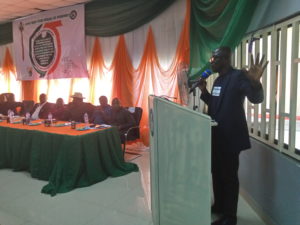
He recommends that since, the government intends to achieve its vision of creating better development outcomes and adding more value to the lives of rural dwellers, it will be necessary to substantially increase the funding of this agency of government.
Science and Technology
The executive allocates 1 billion to science and technology as capital budget for the sector. This represents 0.27% of the total capital budget for 2020.
According to Youth Advocacy Cluster, this allocation is not in alignment with the Government’s policy trust of industrialization and job creation, especially considering the job opportunities which this sector can create for the teeming youths in Akwa Ibom State if well utilized.
They Executive Director of the Cluster, Kingsley Atang explains that Industrialization can only take place if there is more investment in that sector. He adds ” It is saddening that the Ibom Science park project has not been reflected in this bill considering the level of growth and economic impact this project would have created through foreign direct investment, job creation and revenue generation.
” It is worthy to note that in the 2016 budget, it was highlighted that attention will be given to the Ibom science park however this is not reflected in the 2020 appropriation bill.”
Youth and Sports, Social Development
The executive proposes N2.2 billion for this sector. However, Youth Advocacy Cluster points out that for a sector which is solely saddled with the responsibility of developing the youths of the State which constitutes over 60 percent of the State’s demography, It is an aberration to have such appropriation. They note that since N2.2 billion is below 3 percent, this cannot actualize the policy trust of the State Governor which seeks to broaden and diversify the State resource base through improvement in Internal generated revenue.
Atang recommends that this narrative could be changed if the Akwa Ibom Youth Development Fund Bill (AKYDF) is signed into law and implemented. He notes that the Akwa Ibom Youth Development fund which has undergone all legislative processes in the Akwa Ibom State House of Assembly and currently awaiting the executive assent of the Governor, if given assent and implemented would gradually progress the State from a consumption prone state to a production prone state.
He explained that the Fund can attract increased financial provision worth over 1 billion naira to the state from the bank of industry, the Global youth empowerment fund, Exxon Mobil among other firms. Atang adds ” It would attract increased private sector investment in the economy and aid strengthening of economic institutions as different companies will seize the opportunity to expand their market among this large demography.
” This fund would also strongly increase internal generated revenue (IGR) as youths who are now gainfully employed and own businesses can now pay their taxes and other levies.” The Cluster urge the Governor to give his executive assent to the AKYDF bill to build and strengthen public trust between the Government and Youths for a greater Akwa Ibom State.
Judiciary
N2 billion is budgeted for Akwa Ibom State Judiciary. In their assessment, Policy Alert notes that this budget provision means that all the High Courts, Magistrate Courts, Customary Courts, Special Courts like Rent and Sanitation Courts, Open Door Courthouse, with more than 100 Judges and Magistrates will have only N2 billion to address their needs for the fiscal year while the Akwa Ibom State House of Assembly with only one building (the Assembly Complex and 23members) got N3 billion.
While stating that the review of the 2018 budget shows that less than 10 per cent of what was voted for the Judiciary was actually released, Policy Alert boss notes ” The three arms of Government are supposed to be independent in a democracy. The Judiciary cannot be independent if it is starved of funds.”
Allocations to Labour
N500 million, the lowest sectoral allocation in the 2020 budget is the capital vote for the Ministry of Labour and Manpower Planning. The Nigeria Labour Congress, NLC complains that in previous years, they have drawn the attention of Government to what they describe as sad situation of relegation of the Ministry of Labour to the bottom of Government’s priorities.
The NLC Acting Secretary, Ibara says this action has culminating in the Ministry having the least allocation every year in the fiscal proposals. Consequently, he states ” This is unacceptable to the Labour Movement given the continuing critical role of manpower in our economic development. We therefore call on the House to cause an upward review of the allocation to this all-important Ministry.”
The Trade Union Congress are equally displeased over the way labour is treated. The TUC Chairman identifies where the problem begins. He notes that the Labour centers, and perhaps other
stakeholders have not always been carried along or consulted in the
preparatory phase of budgeting in the state, including the 2020 budget.
The Public finance Economist posits that going forward, the trend has to change noting that labour leaders
can as well make meaningful and directional contributions to the budget.
He however threatens ” it is our
expectation that this proposal has extensively taken into account the new minimum wage and the consequential adjustment recently signed into law; and the arrears thereof. This expectation is pertinent because, as
Labour, we do not earnestly want any disruption to the smooth and successful implementation of this budget when finally passed into law. ” Notwithstanding the allocation to various sectors, there are still other imperatives identified to help the 2020 budget.
Revenue Profile
Ibara notes that the proposal for Internally Generated Revenue (IGR) of N 52.556 billion in 2020 is considered unattainable based on previous years’ realities. He explains that the consistent slide in receipts from this subhead is consternating especially against the backdrop of the impending global post-hydrocarbon economy.
Ibara recommends urgent efforts towards reversing the trend, suggesting the complete automation of key revenue generating units as a way of improving IGR collection.
Fiscal Governance
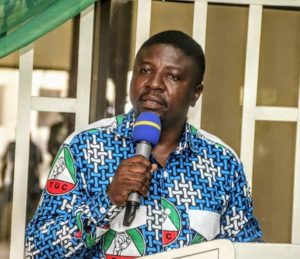
The TUC Chairman notes that they have discovered that
information on the State debt levels are lumped up under Consolidated Revenue Fund Charges which he says gulp up to N116.93 billion, inclusive of Pensions and Gratuities.
Abang notes that it is the position of TUC that these should be unbundled for clarity of analysis and robust debate. He adds “We need to know our current debt to revenue ratio and other fiscal sustainability indicators, especially with the proposed new borrowing of N35.3 billion.” Yet, what would have helped this to happen?
The NLC Acting Secretary offers insight to the fact that the Fiscal Responsibility Bill which was passed into law by the Akwa Ibom State House of Assembly in July 2017 if given assent would have done the magic. He says this critical piece of legislation is an imperative for prudence and efficiency in the conduct of fiscal businesses. He however express displeasure that the bill is yet to be gazetted among the State’s laws. He notes that the NLC urges the House to exercise its powers to ensure that this law is gazetted.
In the same vein, Policy Alert challenge the executive and the AKHA to prove to Akwa Ibom people that the 2020 budget estimate was based on multi-year plan. He states ” The governor has to urgently furnish the AKHA and the public with an advisory
annex to this Appropriation Bill that more rigorously interrogates the budget priorities within the
context of a Medium Term Expenditure Framework (MTEF) 2020 to 2022.” What benefit will this bring? Bolton explains that the MTEF sets out government’s economic and fiscal objectives in a multi-year framework ahead of budget presentation.
He insist that the governor’s 2020 budget speech does not mention the MTEF hence this is a rollback
from previous years where it was often mentioned even though there was no evidence of its existence .
Policy Alert Executive Director posits “The MTEF should not be a secret document for a State that is focusing on
industrialization and investment promotion. No serious investor will port Capital into the State
without studying the State’s multi-year fiscal scenario.”
He insists that if the Fiscal Responsibility Bill has received assent, such a law would make it illegal for the executive to present a budget without first presenting the
MTEF and Medium Term Sector Strategies (MTSS).
In spite of these submissions, since the budget now lies before the Akwa Ibom State House of Assembly, will they yield to the yearnings canvassed?
Position of AKHA
Akwa Ibom State House of Assembly Committee on Appropriation and Finance is directly in charge of the budget scrutiny. The Chairman of the Committee, Rt Hon Uduak Odudoh during public hearing of the budget assured that as representatives of Akwa Ibom people, the State House of Assembly will effectively scrutinize the 2020 budget proposals.
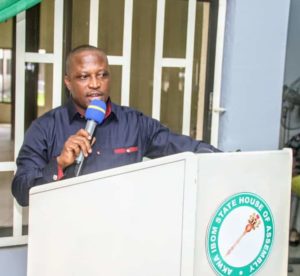
He notes that as part of their oversight function, they will monitor and supervise its implementation in the best interest of Akwa Ibom people.
However, the oversight function does not exclusively reside at the committee level. The entire lawmakers are empowered to make inputs during committee of the whole. The Speaker of the Akwa Ibom State House of Assembly, Rt Hon Aniekan Bassey who superintends over this committee notes that the House values contributions from all for an effective budget of the State.
While assuring that their contributions will not be taken for granted, he adds” You can be sure that your patriotic, professional and frank contributions, where applicable shall be built into form the basis for what will become a workable instrument and compass for all the three arms of government for the 2020 fiscal year”.
Glaringly, expectations are high consequent upon the assurances from the Akwa Ibom State House of Assembly to use the contributions given to them as a compass to guide their operations during the refining processes before passing the 2020 budget proposals into law.
In fact, the words of Professor of Economics, from University of Uyo, Prof. Emmanuel Onwioduokit while addressing members of the Akwa Ibom State House of Assembly during their 3-Day In-house workshop sums up the thought of Akwa Ibom people “If there is a challenge in the budgeting process, the Legislature cannot be exonerated because they have opportunity to contribute, monitor implementation and evaluation progress through oversight functions”.
